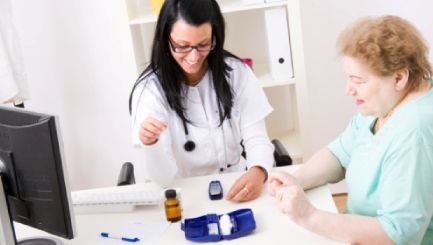How To Get Started With Your Type 2 Diabetes Action Plan
 Finding out that you have developed type 2 diabetes is not news that anyone wants to get. However, though it means making some lifestyle changes, a diabetes diagnosis does not mean that your life is over. With so many resources online and in your community for the disease, the good news is that you can look after your wellness for years to come, and you’ll never be alone.
Finding out that you have developed type 2 diabetes is not news that anyone wants to get. However, though it means making some lifestyle changes, a diabetes diagnosis does not mean that your life is over. With so many resources online and in your community for the disease, the good news is that you can look after your wellness for years to come, and you’ll never be alone.
Usually, your body breaks down sugar into energy, and needs insulin to accomplish this. Therefore, type 2 affects your wellbeing because it causes your body to produce less insulin, or use it less efficiently, and so the sugar causes problems by staying in your blood. Unfortunately, there is currently no cure for type 2 diabetes, but that doesn’t mean it is unmanageable.
Firstly, make sure you have a diabetes care team, and you know what they can give you. You might have a doctor, nurse, pharmacist, dietician and a diabetes educator, whom your doctor can refer you to. If your doctor prescribes you medications for controlling your blood glucose, make sure you know how many to take and how often, and how to prevent and treat any side effects. Your doctor may also tell you to check your blood glucose at home, and help you to select a method that works for you. Failing this, your diabetes educator is on hand to help, and either medical professional will be able to show you how to use it.
Your doctor can also tell you how much aerobic activity you need daily, whether you need to lose weight or just help your insulin work better. Little things, like getting off the bus a stop early or walking around the room whilst on the phone, can help you to start getting active. If you do need to lose weight, dropping just 10 or 15 pounds can make a huge difference, so try to get 30 minutes of aerobic activity every day.
When it comes to your meals, your diabetes educator or dietician can tell you all you need to know, and you may be surprised as to how much you can still eat. The main thing is to eat the right portions of a variety of foods, and to space meals throughout the day and not skip any. For meal planning, the ‘Plate Method’ can be a real help. Make sure that non-starchy vegetables fill half of your plate, starchy foods, such as whole-grain breads, rice, potatoes, or cereal, fill a quarter and fill the rest of the plate with meat or meat substitutes. Then all you need is an eight-ounce glass of non-fat or low-fat milk and a piece of fruit and you’re good to go.


Comments are closed.